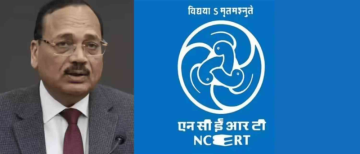Beyond its golden sands, the Thar Desert tells stories of people who have been strong. Within the villages of Rajasthan, there is a quiet change going on. This isn't a movement for big announcements or big changes. Rather, it's a movement that gradually weaves itself into the fabric of custom. Women like Shanti Devi whisper this story in the regular click-clack of the loom.

Exactly like the carpets Shanti Devi makes, her life is a tapestry of complicated battles and bright victories. As dawn breaks, she takes care of her big family, but her heart goes far beyond the walls of her house. Beyond being a wife and mother in the town of Manpura, she is also a respected "Bunkasakhi" (leader) who has changed the lives of many women over the past 15 years.
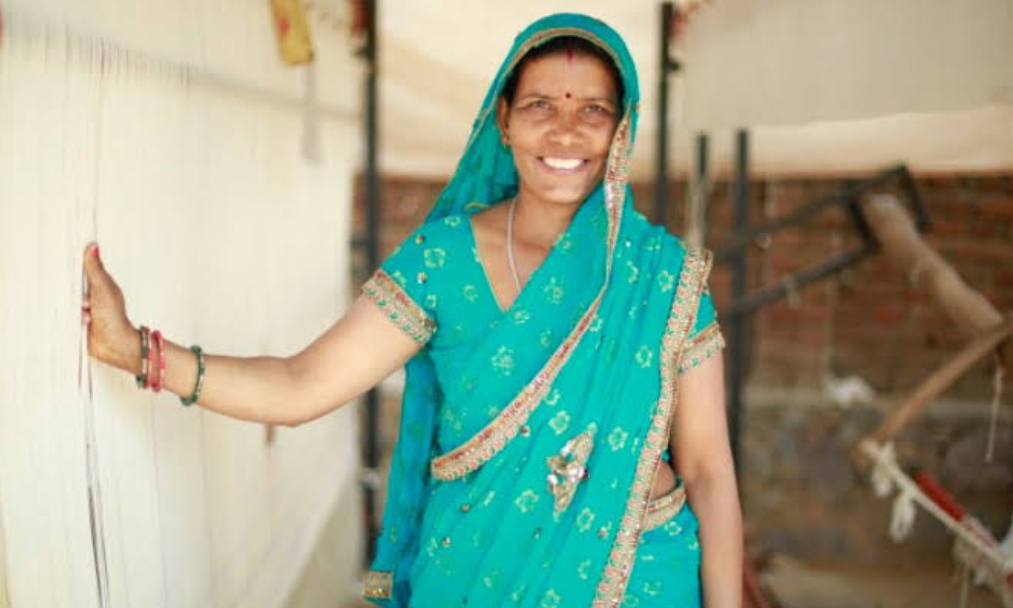
Shanti Devi's simple yet profound purpose is to break the chains of financial dependence in a patriarchal world. "So they don't have to depend on their alcoholic husbands," she says in a strong voice. "I teach women how to weave." Every knot they make isn't just a thread in a carpet; it's a thread of freedom and a way to a future full of personal and independent growth.
The Power of a Single Thread" goes from livelihood to legacy
Although hand-weaving carpets may look like an old craft, it is actually a way for whole towns to make money. Every masterpiece takes months to complete, with 16 to 18 women working hard every day for 10 to 12 hours. It shows how dedicated they are—a labor of love that not only makes beautiful rugs, but also people's lives. The 250–300 rupees that a weaver makes every day go beyond their families and improve the village as a whole.
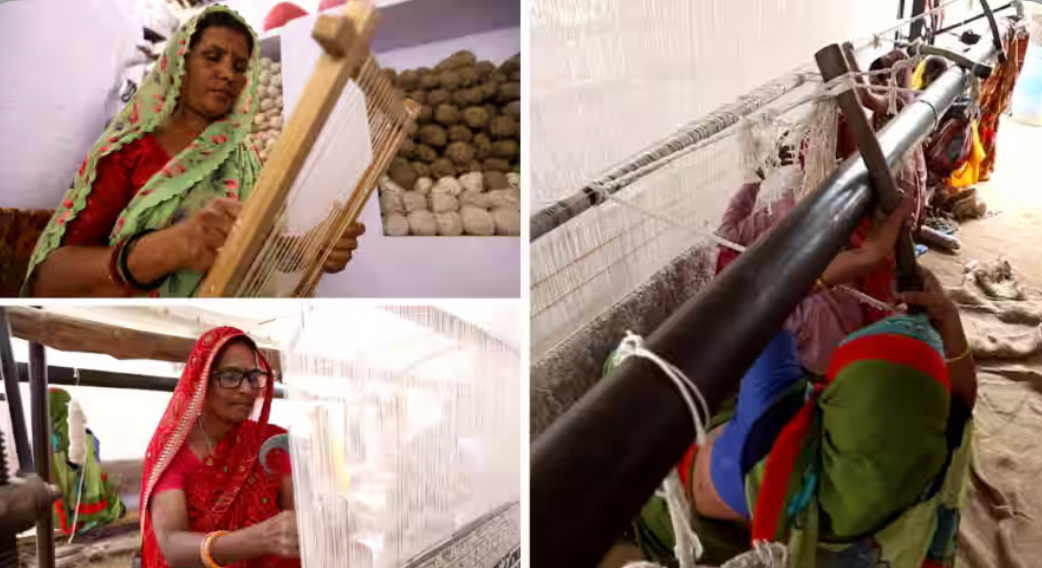
Shivani Devi's story goes beyond the limits of Manpura. It gives a lot of women across the world hope and inspiration. Her creations, once confined to village looms, now grace houses worldwide, embodying a blend of tradition and forward-thinking vision. Working with famous designers like Gauri Khan, these carpets have become more than just useful items; they are now symbols of strength and artistry, and each intricate design shows how rich Rajasthan's cultural history is.
The story of Jaipur Rugs, from humble beginnings to providing thousands of people with employment opportunities
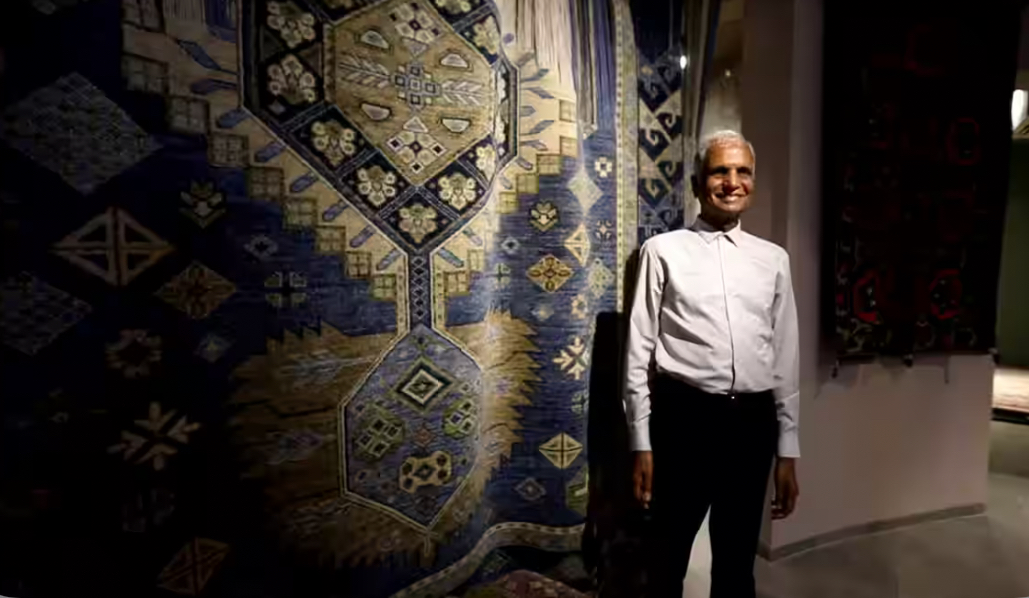
This remarkable narrative also weaves in Nandkishore Chaudhry, the visionary founder of Jaipur Rugs. His story, like Shanti Devi's, is one of rising above limitations. Chaudhry began his journey in his father's shoe shop, driven by a desire for social impact. Armed with a loan and a dream to transform laborers into artists, he founded Jaipur Rugs in 1978 with just seven looms and seven weavers.
Nowadays, Jaipur Rugs has more than 7,000 looms and employs more than 40,000 craftsmen, 80% of whom are women like Shanti Devi. Chaudhry's goal wasn't just to make his business great; he also wanted to enact positive change all around. The business he started has helped 600 towns in six Indian states grow economically and socially.
Promoting tradition and creativity beyond business
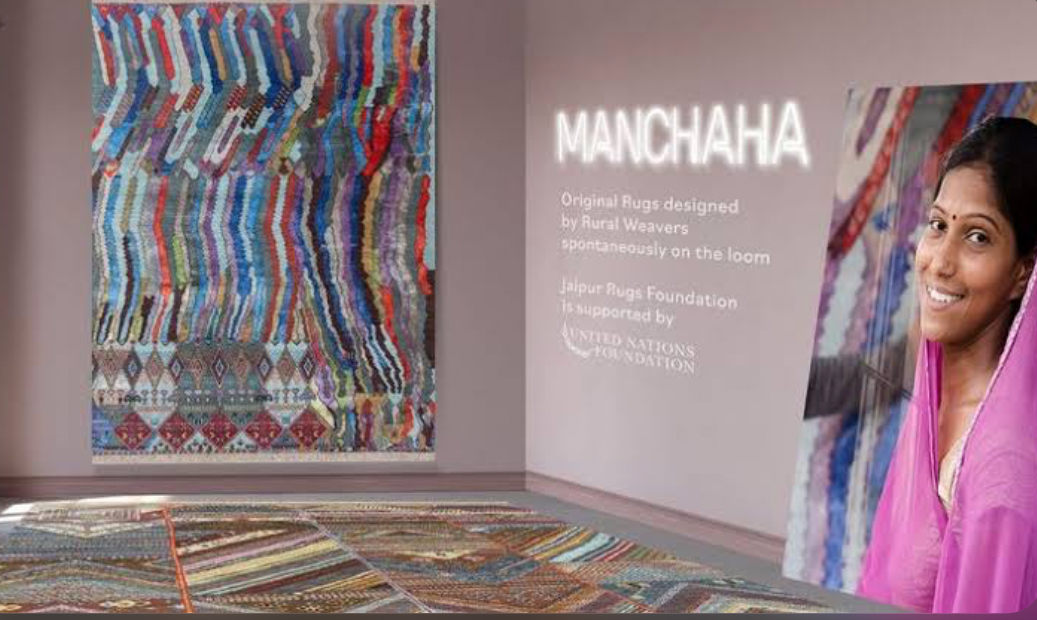
Chaudhry's dedication goes far beyond personal gain. Programmes such as "Manchaha" and "Freedom Manchaha" provide weavers with the tools they need to participate in the creation process. The loom weaves aspirations into the very fabric of these rugs. You can find these lovingly made items in over 80 countries worldwide, not just in India.
People are buying and selling a lot of carpets, but the business is also about keeping traditions alive, encouraging creativity, and making people happier. Jaipur Rugs stands out as a beacon of hope, supporting handmade goods in a world where mass production dominates. This story shows that having a goal and caring about others can lead to both financial success and social responsibility.
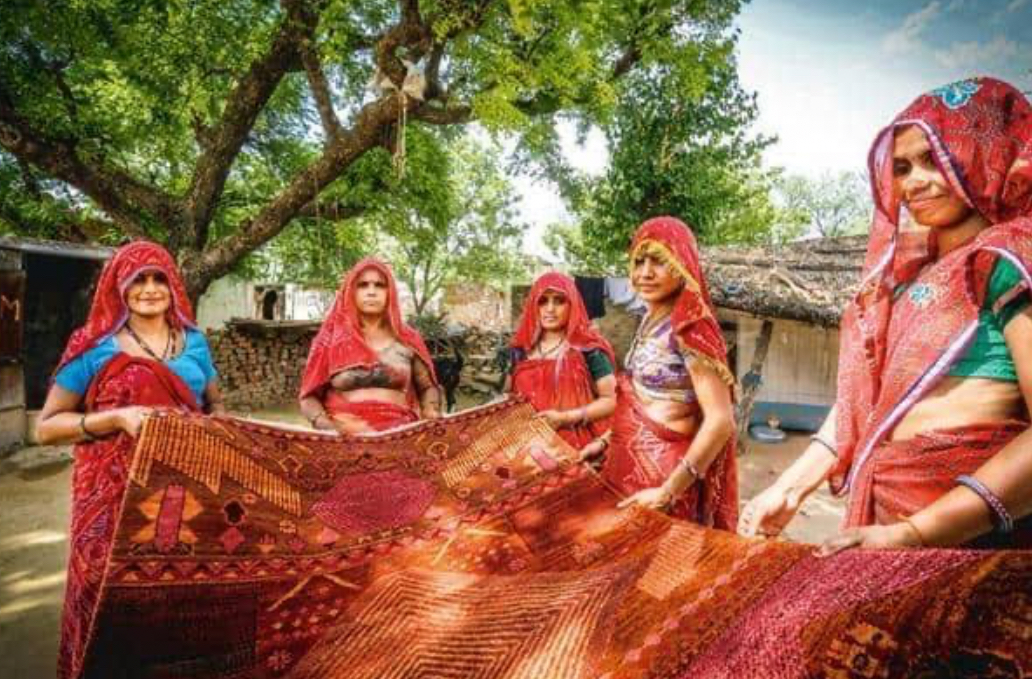
A Better Future for Everyone: The Unfolding Tapestry
In India's ongoing efforts to grow and improve, the lives of Shanti Devi and Nandkishore Chaudhry serve as examples. Their stories show a way to a future where custom and progress coexist, giving women the power to weave not only carpets, but also a future full of boundless possibilities. Every design and knot they make makes their society stronger, showing that even small revolutions can have big effects. India's towns weave more than just carpets; they also weave a better future for future generations.
Image Source: Multiple Agencies
Inputs from Agencies
© Copyright 2024. All Rights Reserved Powered by Vygr Media.




